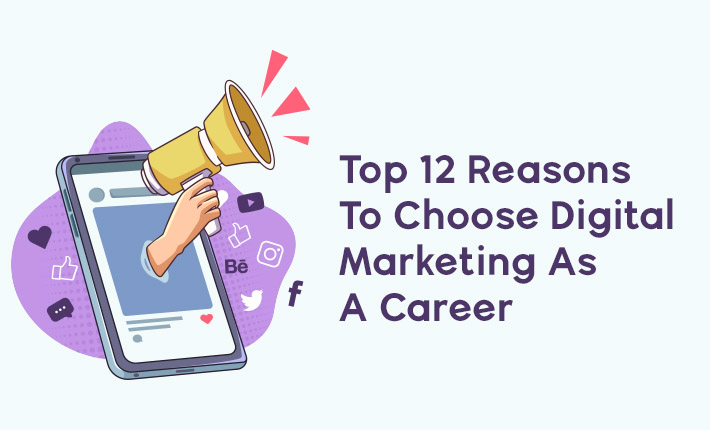What Is Digital Marketing?
Digital marketing refers to the practice of promoting products, services, and brands using digital channels and technologies. It encompasses a range of online marketing strategies and tactics aimed at reaching and engaging target audiences, driving website traffic, generating leads, and ultimately achieving business goals.
Digital marketing leverages various digital channels and platforms, including search engines, social media, email marketing, content marketing, mobile apps, websites, and online advertising, to connect with potential customers and build brand awareness. It involves creating and distributing relevant and valuable content, optimizing websites for search engines, utilizing social media platforms to engage with audiences, running targeted online advertising campaigns, and analyzing data to measure and improve marketing efforts.
Key components of digital marketing include:
1. Search Engine Optimization (SEO): Optimizing websites to rank higher in search engine results pages (SERPs) to increase organic (non-paid) visibility and drive targeted traffic.
2. Search Engine Marketing (SEM): Running paid advertising campaigns on search engines, such as Google Ads, to increase website visibility and drive traffic through targeted keywords and ads.
3. Social Media Marketing: Leveraging social media platforms, such as Facebook, Instagram, Twitter, LinkedIn, and YouTube, to build brand awareness, engage with audiences, and promote products or services.
4. Content Marketing: Creating and distributing valuable, informative, and engaging content (such as blog posts, videos, infographics, and ebooks) to attract and retain audiences, drive website traffic, and establish authority and credibility.
5. Email Marketing: Sending targeted email campaigns to nurture leads, communicate with customers, and promote products or services, often utilizing personalized and automated approaches.
6. Mobile Marketing: Optimizing marketing efforts for mobile devices, including mobile-responsive websites, mobile apps, and location-based marketing.
7. Online Advertising: Running paid advertising campaigns across various digital channels, such as display ads, video ads, native ads, and retargeting, to reach target audiences and drive conversions.
8. Web Analytics and Data Analysis: Collecting and analyzing data to measure the effectiveness of marketing campaigns, track website traffic, user behavior, and conversions, and gain insights for optimization and decision-making.
Digital marketing offers businesses the ability to target specific audiences, track campaign performance in real-time, optimize marketing strategies based on data-driven insights, and achieve a higher return on investment (ROI) compared to traditional marketing methods. It is a rapidly evolving field that requires continuous learning and adaptation to keep up with the changing digital landscape and consumer behavior.
Reasons To Choose Digital Marketing As A Career
In today's digitally-driven world, digital marketing has emerged as a dynamic and rapidly growing field. As businesses increasingly shift their focus to online platforms, the demand for skilled digital marketers continues to rise. If you are considering a career in this field, you are in the right place. In this article, we will explore the top 12 reasons to choose digital marketing as a career. From the diverse range of job opportunities to the potential for creativity and continuous learning, digital marketing offers a host of compelling reasons to pursue it as a career path.
1. Thriving Job Market: Digital marketing professionals are in high demand across industries. As businesses recognize the importance of a strong online presence, they require skilled marketers to develop and execute effective digital marketing strategies. This demand ensures a plethora of job opportunities and a competitive job market for digital marketers.
2. Diverse Career Options: Digital marketing offers a wide range of career options, allowing individuals to specialize in various areas such as search engine optimization (SEO), social media marketing, content marketing, email marketing, digital advertising, web analytics, and more. This diversity enables professionals to find their niche and pursue a career path aligned with their interests and strengths.
3. Continuous Learning: Digital marketing is a field that constantly evolves due to technological advancements and changes in consumer behavior. This creates an exciting learning environment where professionals need to stay updated with the latest trends, tools, and strategies. Continuous learning is not only challenging but also provides opportunities for personal and professional growth.
4. High Growth Potential: The digital marketing industry is experiencing significant growth, and this trend is expected to continue. As more businesses allocate larger budgets to digital marketing, professionals in this field have the potential to advance quickly and take on higher-level roles. This industry's growth presents ample opportunities for career progression and long-term success.
5. Creativity and Innovation: Digital marketing allows for creative and innovative thinking. Professionals have the freedom to come up with unique and engaging marketing campaigns, develop compelling content, and explore new strategies to connect with their target audience. This creative aspect of digital marketing offers a fulfilling and stimulating work environment.
6. Data-Driven Decision Making: Digital marketing relies on data analysis and insights to drive decision making. Professionals use tools and analytics platforms to track and measure the performance of marketing campaigns, gain insights into consumer behavior, and make data-driven decisions. This data-centric approach enables marketers to optimize their strategies and achieve better results.
7. Flexibility and Remote Work Opportunities: Digital marketing offers flexibility in terms of work arrangements. Many digital marketing roles can be performed remotely, allowing professionals to have a better work-life balance and the freedom to work from anywhere. This flexibility is particularly appealing for individuals who value autonomy and seek a non-traditional work setup.
8. Global Reach and Impact: With digital marketing, professionals have the opportunity to reach a global audience. The internet has no geographical boundaries, enabling businesses to expand their reach beyond local markets. Being a part of this global impact can be exciting and rewarding, especially for those who are passionate about making a difference on a larger scale.
9. Fast-Paced and Dynamic Environment: Digital marketing operates in a fast-paced and ever-changing environment. This field is characterized by constant innovation, emerging trends, and evolving consumer behaviors. For individuals who thrive in dynamic environments and enjoy adapting to new challenges, digital marketing offers an exhilarating and stimulating career path.
10. Entrepreneurial Opportunities: Digital marketing skills are highly valuable for entrepreneurs and individuals looking to start their own businesses. With a solid understanding of digital marketing strategies, individuals can effectively promote their products or services, target their audience, and drive business growth. Digital marketing expertise allows entrepreneurs to optimize their online presence, attract customers, and compete in the digital marketplace.
11. Competitive Salaries and Benefits: Digital marketing professionals are often well-compensated for their skills and expertise. The demand for qualified digital marketers has led to competitive salaries and attractive benefit packages. As professionals gain experience and expertise in the field, their earning potential increases, offering financial stability and rewards for their contributions.
12. Industry Recognition and Networking Opportunities: The digital marketing industry provides numerous networking opportunities and avenues for professional recognition. By actively participating in industry events, conferences, and online communities, professionals can connect with like-minded individuals, learn from industry leaders, and expand their professional network. Building strong relationships within the industry can open doors to new career opportunities, collaborations, and knowledge sharing.
Choosing a career in digital marketing offers a multitude of benefits and opportunities. From a thriving job market and diverse career options to continuous learning and the potential for creativity and innovation, digital marketing is a field that promises excitement, growth, and fulfillment. Whether you are passionate about analytics, social media, content creation, or strategic planning, digital marketing allows you to specialize and contribute to the success of businesses in the digital era. Embrace the dynamic nature of digital marketing, seize the opportunities it presents, and embark on a rewarding career journey in this ever-evolving field.
Learn Digital Marketing
If you're interested in learning digital marketing, there are several avenues you can explore. Here are some steps you can take to start your digital marketing learning journey:
1. Research and Familiarize Yourself with Digital Marketing: Begin by understanding the basics of digital marketing and its various components. Read blogs, watch video tutorials, and explore reputable websites to gain a foundational understanding of digital marketing concepts, strategies, and tools.
2. Online Courses and Certifications: Enroll in online digital marketing courses offered by reputable platforms such as Coursera, Udemy, Google Digital Garage, HubSpot Academy, and LinkedIn Learning. These courses cover a wide range of digital marketing topics and often provide certifications upon completion.
3. Specialize in Specific Areas: Digital marketing encompasses various disciplines. Consider specializing in specific areas such as search engine optimization (SEO), social media marketing, content marketing, email marketing, pay-per-click (PPC) advertising, or web analytics. Take courses or workshops focused on these areas to gain in-depth knowledge and skills.
4. Learn from Industry Experts: Follow influential digital marketers and industry leaders on social media platforms, read their blogs, listen to their podcasts, and attend webinars or conferences where they share their insights. This will help you stay up to date with the latest trends, strategies, and best practices in the field.
5. Hands-on Experience: Gain practical experience by working on real-world digital marketing projects. Start by creating your own website or blog, managing social media accounts, running small advertising campaigns, and analyzing website traffic using tools like Google Analytics. Hands-on experience will enhance your skills and provide valuable portfolio material.
6. Networking and Community Engagement: Join digital marketing communities, forums, and social media groups to connect with fellow learners and professionals. Engage in discussions, ask questions, and seek advice. Networking can lead to valuable connections, mentorship opportunities, and career growth.
7. Stay Updated: Digital marketing is a fast-paced industry with ever-evolving trends and technologies. Stay informed about the latest updates, algorithm changes, and industry news through reliable sources, industry blogs, newsletters, and podcasts. Continuous learning and adaptation are essential to excel in this field.
8. Analyze and Optimize: Develop a data-driven mindset by understanding key metrics and analytics. Learn how to analyze data, measure the success of your marketing campaigns, and make data-backed decisions to optimize your strategies for better results.
Remember, digital marketing is a practical field that requires hands-on experience and continuous learning. Experiment with different strategies, tools, and platforms to develop your skills. As you gain knowledge and experience, consider building a portfolio to showcase your work and expertise to potential employers or clients.





Leave a reply